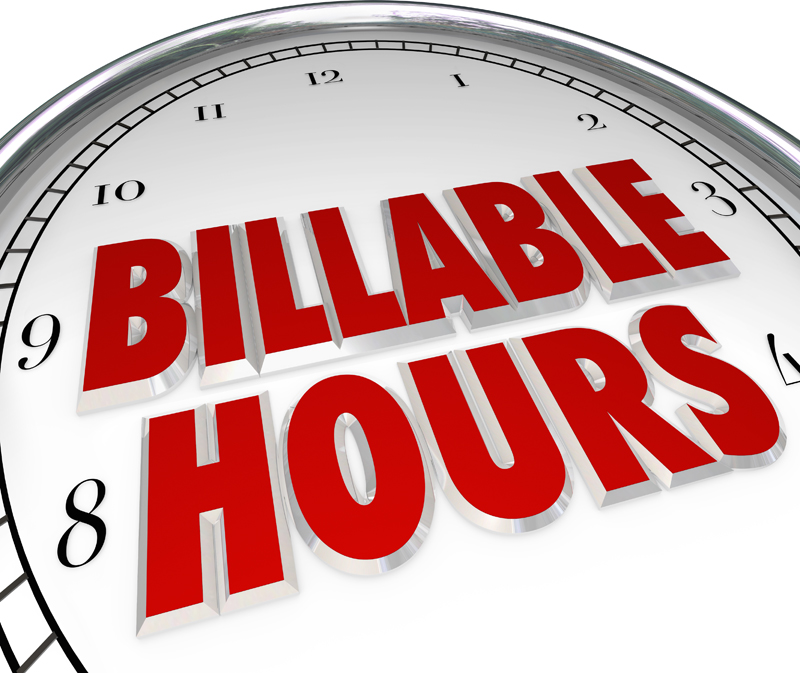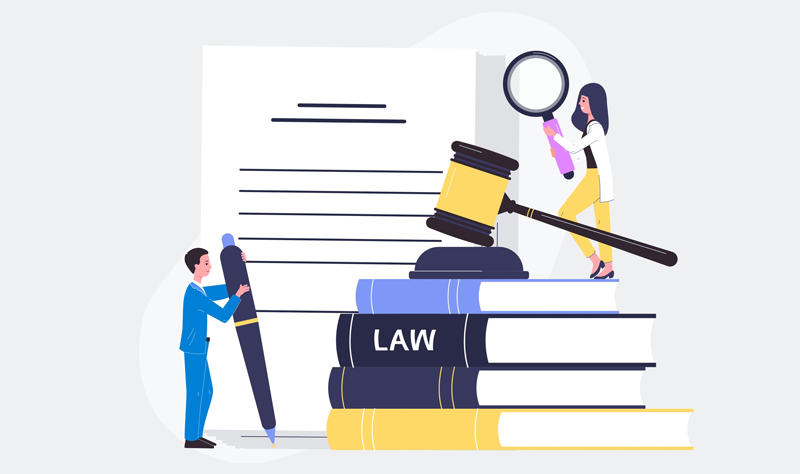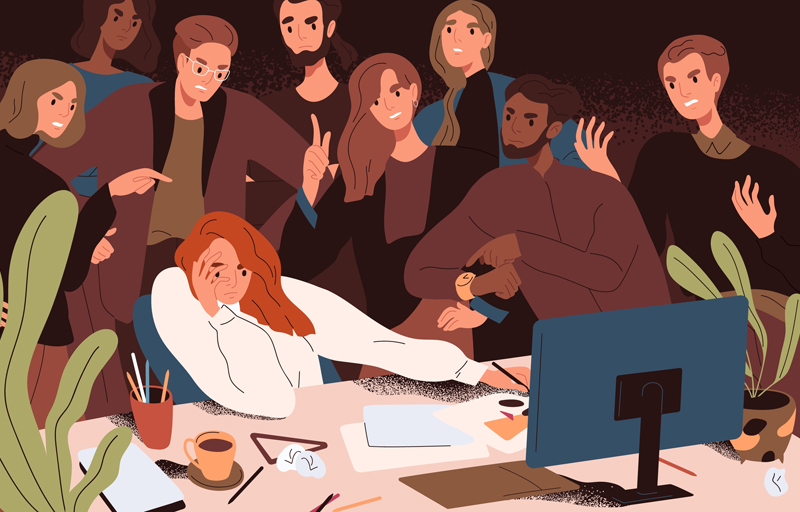Several years ago, I hired a manager in my legal recruiting firm BCG Attorney Search. The manager had been trained in his previous job (not involving attorneys) to give people an online personality test. The test was quite amazing. Someone would sit down and spend 30 minutes taking the test, and the software would email the manager a 10+ page single-spaced essay about what the person was like psychologically, how they would get along with their peers, how they saw the world, and other insights.

I took the test, read the report, and found it spot on. I could not believe how accurate it was. When the manager asked me to spend $5000 to fly him to Miami to attend a conference on the test, I agreed to do it without hesitation. It was a great test.
 |
| Harrison Barnes |
The recruiting firm I was using the test for, BCG Attorney Search, was growing quite rapidly at the time, and we needed to hire people from all over the country. Each day, we would interview several potential recruiters for the firm. All the people we were interviewing were attorneys. If the person did well in the interview, they would be tested. Each week I would have a meeting with the manager and hear the same thing:
"I am not sure what is going on, but all of the attorneys we are interviewing are turning out to have serious emotional problems. I would not recommend hiring any of them."
While this manager had never worked with or recruited attorneys before, it was strange to me that all of the applicants had emotional problems. On one occasion, he interviewed an extremely successful attorney I was acquainted with, and the test came back showing this person had emotional problems, too. This person is still practicing law and is now one of the more successful attorneys in the United States. She is extremely well-respected and regarded. In fact, she is one of the most successful people I know.
However, I still have faith in the test.
- According to the test, one person we interviewed was "ready to explode." Years later, I read about this attorney being accused of attempted murder (an attorney from a major New York law firm).
- According to the test results, another person we interviewed would likely break the law if they believed it was justified. Ten years later, I read about this person being convicted of attempting to smuggle illegal aliens across the border from Mexico under the seat of a Lincoln Continental (an attorney from a major San Francisco law firm!).
Reading the software's results was like sitting in a psychiatric hospital reading reports about mentally disturbed patients.
Attorneys frequently have psychological issues. Could it be that all attorneys have psychological issues?

We did not hire anyone for almost a full year. I remember most about this test because the people we tested were eventually hired had been practicing law for the least amount of time. The applicants who had been practicing law the longest were almost universally eliminated after taking the test.
This leads me to believe that the legal profession has a special set of stress factors that—quite literally—may "drive people crazy." Lately, I have been analyzing popular content on our websites, and this is what I have found:
First, some of the more popular articles on the legal careers site our company runs involve searches for articles about attorneys dying from stress, how to deal with stress, leaving the practice of law, finding work in a different environment, getting along with difficult superiors, and other stress-related topics.
Some Popular Articles:
- Articles about Attorneys Dying of Stress
- Another Big Law Attorney I Know Just Died Young
- The Quality of Your Life and Career is the Result of Your Habits
- Article about Dealing with Stress
- The Importance of Disconnecting from Your Work
- Article about Leaving the Practice of Law
- The Practice of Law: To Stay or Go
- Articles about Working in a Different Environment
- The Dark Side of Going In-house
- The Importance of Environment
- How to Explain Job Hopping
- Article about Dealing with Difficult Superiors
- If My Boss Gets Mad at Me or I Get a Poor Review, Does This Mean I Should Look for a New Job?
Another popular search is for in-house jobs. The most popular search on our website, LawCrossing, is for in-house jobs. This site has more than 10,000 in-house jobs for attorneys, and these jobs are searched for most often.
I also work as a recruiter at a company that does in-house counsel placements. It is a small company, but we typically manage to do a fair amount of placements. Unfortunately, when we make the number public, the phones ring off the hook (four or five lines lighting up at once). We only give the telephone number to candidates we are working with. These calls come from attorneys who are unhappy working inside law firms. They want a way out, something different but still respectable, and are desperate to change their situation. Attorneys are so unhappy, it seems, that a recent study has shown that one-third of lawyers have a problem with alcohol.
Most attorneys are unhappy and are not enjoying themselves. For example, seven in ten lawyers responding to a poll from California Lawyers Magazine said they are interested in a career change. "Disenchantment growing pervasive among barristers," Houston Chronicle, 5A.
If there is so much unhappiness and attorneys are seeking answers to lead better lives, it is important to understand the causes of their dissatisfaction.
Reasons Why Attorneys Are Unhappy
Here are just a few of the fundamental reasons why an attorney is unhappy:
1. Why do attorneys despise the work and really would like to do something different?
2. Why do attorneys dislike the people they are working with?
Attorneys know it is important to get along well with clients, co-workers, and superiors. Nevertheless, many attorneys quickly realize that they have few "real friends" at work. The people they are working with are not necessarily interested in making them look good and are secretly hoping they fail.
3. Why do attorneys hate being accountable for so many small details?
An attorney's entire career can be ruined by making a single small mistake. I once saw a woman lose her lawyer job after working 3,000 hours a year for over ten years in a big law firm because she forgot to get a client to sign a form. The results of this were catastrophic, and the client ended up losing the case due to this attorney's error.
4. Why cannot attorneys stand having to work constantly and compete with their peers?
Unlike most jobs where people are judged on the quality of their work, one of the most important things inside a law firm is the number of hours you work.
5. Why are attorneys miserable being behind a desk all day?
Most attorneys spend the majority of their days trapped behind a desk. There is very little one-on-one interaction and socializing when you are under pressure to bill as many hours as possible. While television shows and movies glamorize the practice of law, most attorneys spend their time in an office, sitting at a desk, staring at a computer monitor.
6. Why are attorneys unhappy for another reason other than becoming an attorney?
Many attorneys went into the practice of law because they were unhappy, to begin with, and wanted success and recognition. Many become extremely disappointed and resentful when they realize that becoming an attorney did not make them happier.
7. Why do attorneys feel handcuffed to student loan payments, a mortgage, family, and other responsibilities?
A law degree and law school debts are often hundreds and hundreds of thousands of dollars. Once an attorney purchases a home or begins a family, they will add a mortgage and other expenses to their student loan debt. These attorneys now have few options but to continue practicing law. On top of this, most attorneys are liberal arts majors with no other marketable skills. This makes them feel completely trapped.
8. Why are attorneys exhausted from the constant conflict (conflict with peers, conflict with clients, and conflict with opposing counsel)?
The constant conflict attorneys face can take a massive toll on them. This conflict is never-ending and something that drains attorneys emotionally and physically.
9. Why do attorneys have problems in their personal lives?
When I started practicing law in the firm I was in, every attorney I knew had been divorced at least once. While the divorce rate of attorneys is a separate discussion completely, the long hours, stress, lack of social interaction, and constant conflict often follow an attorney home. This results in a lot of personal issues.
10. Why are attorneys paid (and trained) to be cynical and find out all of the things that can go wrong?
They are often met with hostility by their clients and seen as people trying to destroy deals by pointing out everything that could go wrong. This adversarial nature carries over into everything they do. Attorneys learn to not only be cynical with others, but they also become cynical with themselves (the exact opposite of optimistic!), almost expecting the worst.
11. Why do attorneys need to constantly be busy billing hours?

If the work stops, they are in danger of losing their jobs. If a client is willing to pay for work, attorneys are expected to work as many hours as possible to get the work done. When firms lose their business, they will very quickly cut attorneys—so attorneys are expected to stay busy all the time. Even in-house attorneys are seen as non-revenue generating "cost centers" and constantly risk losing their jobs. At one firm I worked in, partners only assigned work to people they liked. You had to become friends with them to get work. If you upset even one partner, you were in danger of losing all work from them in the future—or being "blackballed" by other partners in the firm.
12. Why are attorneys in most law firms cleaning up messes and resolving conflicts for others who are "doing more important things"?

People are out in the world creating conflicts and doing all kinds of "important things." They are entering into contracts, getting into business disputes, creating companies, accruing tax liabilities, and on and on. Attorneys, in contrast, are dealing with other peoples' issues. I was in the process of selling a company, and when I was about to complete the deal, the investment banker told me, "I need to call the 'monkey scribes' to get this done." While I hate to say this, most lawyers (not all) are doing clerical work. I remember my wife and me meeting with a very famous attorney. Instead of discussing why we were there, the attorney wanted to discuss a Haagen Dazs franchise he had opened that failed. "Why is it lawyers are always trying to start a business on the side?" she asked me. I remember interviewing with the law firm Simpson Thacher in New York about 15 years ago. For lunch, the partners in the firm took me to a restaurant they owned in Grand Central Station. At the time, the profits per partner at this firm were well over $1 million a year. I could not believe these guys were wasting their time on a restaurant. I understand it now. They wanted to feel like they were doing something for themselves.
13. Why do attorneys hate the stress from court deadlines, clients, and managing partners?

When I was practicing law at Quinn Emanuel, every morning, a clerk would deliver a list of upcoming deadlines on various cases I was working on. There were deadlines I had to meet daily and that list just kept growing. It was stressful. There are tons of deadlines in law firms, and they never ended. Missing any deadline can tank your career—it is not an option to miss them. In contrast, in my job dealing with programmers, designers, writers, and others, people blow deadlines on a regular basis! You generally do not have the option of blowing deadlines as an attorney.
14. Why are attorneys often working for relatively low pay (unless it is a large law firm)?
I work closely with an attorney in my office, and we generally hire law clerks to help us. If we post a job on a site like LawCrossing for a clerk at $15.00 an hour, we generally receive hundreds of applications from not just law students—but practicing attorneys. If we wanted to hire attorneys at $15.00 an hour, we could do this all day long (we have chosen to hire law students trying to get experience). Most attorneys are not that well paid. Many need to work as contract attorneys. There are more attorneys than work, and these attorneys often do not have enough work to support themselves.
15. Why do attorneys pay a very high cost for making mistakes on very mundane matters?
I once knew someone clerking for a judge who was reviewing a huge stack of habeas corpus petitions. This clerk mistakenly gave the judge the wrong order to sign letting a hardened criminal out of prison! The judge signed the petition and did not check the clerk's work. This type of mistake can have devastating consequences for the attorney, companies, and even society at large.
16. Why are attorneys forced to work very long hours (attorneys are expected to work very hard and always be available at nights, weekends, and other times)?

I knew an attorney who was taking a deposition in a hotel next to Disneyland in Anaheim, California. The evening before the deposition, he decided to take a walk around Disneyland. A partner from the firm in Los Angeles tried to reach him on his cell phone, but his cell phone was dead. It was about a trivial matter and not really all that important. Nevertheless, when this attorney returned to the office, he was sat down and warned about the importance of always being available. This situation was also brought up in his review. Attorneys need to be available at all times, and they are expected to work as much as they can.
17. Why are attorneys constantly threatened with losing their jobs (if they do something wrong like not having enough billable hours and for other reasons)?
There is a constant threat that attorneys can lose their jobs. During recessions, I have seen firms cut almost their entire department of associates. Partners who do not have enough business are always at risk of losing their jobs. The economy, or lack of business, can hit you like a sledgehammer and make many attorneys almost instantly unemployed and unemployable.
18. Why do attorneys despise working in a non-cooperative and cutthroat atmosphere?
Lawyers inside law firms are always competing with other attorneys in the firm as well as opposing counsel. There is generally a limited number of advancement opportunities inside of a law firm. If four or five attorneys are working on a client matter, each attorney may be competing with each other to look the best to the client. They may blame any mistakes on the other attorneys in the group.
19. Why does an attorney’s situation not improve the longer they practice law?
Unlike most jobs where you become more marketable the longer you do something, for most attorneys, the longer they are practicing law, the harder it is to find new employment.
20. Why are attorneys very isolated?

The sense of being trapped in a job, the fact that they have no choice or other options than to work as an attorney, the cynical psychology that the practice of law engenders, the need to constantly be fighting for one side and taking a stance, the feeling that they are working on others' problems and not their own, and a huge variety of other factors leads attorneys to feel a profound sense of isolation.
21. Why do attorneys have to document every minute of the day, and, if they do not, they will look bad to their superiors?
Attorneys are expected to document all of their time. The more hours an attorney bills the better. Every day is a race to rack up and accumulate as many billable hours as possible. Every hour away from work can negatively impact an attorney's bonus or advancement potential.
22. Why do attorneys detest the fact that there is always someone better, and they are acutely aware of their limitations (based on the law school they attended, their grades in law school, the firm they work for, and other limiting factors)?

There is a huge pecking order among attorneys that is seemingly ridiculous and resembles a European class system from centuries ago. If an attorney starts out at the bottom of this class system, they will rarely move up. Instead, they will be relegated to a lifetime of servicing small clients or working on trivial legal matters. When I started practicing law, I could not believe how much time attorneys spent looking up other attorneys in law directories. In a 5,000 square foot library, you could literally see a path worn in the carpet leading to the directories of attorneys. Attorneys give each other respect (and courts and clients do as well) based on their backgrounds, the quality of the firms they work in or have worked in, the law schools they attended, their performance as a law student in school, the honors they received, the clients they have worked for and more.
23. Why are attorneys generally on the losing side in most legal matters?
Many attorneys take the work they are doing quite personally. They end up feeling great disappointment when they lose matters that they have invested hundreds of hours of their time in. In litigation, results can often be quite random—or even based on an individual judge's political leanings. This can lead to a great sense of frustration.
24. Why do attorneys have a constant need for approval and reassurance that rarely comes?
Attorneys seek approval from their superiors all the time. If an attorney is ignored in the hall by a partner, they may feel a sense of alienation or frustration. Similarly, good work is rarely praised.
25. Why do attorneys face constant criticism?

Attorneys are subject to a barrage of criticism from all angles. Their work is constantly criticized and analyzed under a microscope: a typo here, a missed argument there, an inappropriate comment to a superior, a mistake in front of a judge. Soon, if an attorney is fortunate enough to even send out bills, their bills will start being disputed? There is nothing more frustrating for an attorney than having to fight with a client to get paid.
I honestly believe that practicing law makes many people go crazy. There are just too many stressful factors for most attorneys to handle this profession well.
I saw several gentle "philosophy and humanity-types" enter law school and the legal profession. They began as sweet, nice people. Years later, they were a hundred pounds heavier, angry, slamming down phones, mumbling obscenities, wiping their sweaty foreheads with their arms while revealing equally sweaty armpits.
"Get me a pastrami sandwich and two orders of onion rings!" I once heard an attorney yell to his secretary. At 9:00 in the morning!
You can see this type of attorney in every major city. If I am riding down the street in a cab in Chicago and see a crowd of people hustling down the street, I can pick out the stressed-out lawyers as easily as a hawk spotting a mouse. Fifteen years ago, they may have been stick-thin seniors in college in Starbucks writing poems about the beauty of life and thinking gentle thoughts. "It would be nice to leave a flower by her door with a note about how good she looks today."
Now the same person is a 250-pound divorced beast who will start screaming obscenities when they bump into someone on the street.
Here are some incredible statistics:

The American Bar Association estimates that 15-20 percent of all attorneys are alcoholics or suffer from substance abuse problems. Jones, D. (2001). Career killers. In B.P. Crowley, & M.L. Winick (Eds.). A guide to the basic law practice. Alliance Press, 180-197
- Lawyers have the highest rate of suicide of any profession. Greiner, M. (Sept. 1996). What about me? Texas Bar Journal.
- Lawyers have the highest rate of depression of any profession according to a John Hopkins' study of 100 professions. Occupations and the prevalence of the major depressive disorder. Journal of Occupational Medicine, 32 (11), 1079-1087.
I have run across more people than I can count who are "counselors" and "coaches" for attorneys. In fact, if you want a good business to make money, just call yourself a "coach for attorneys" and people will beat a path to your door. I have seen more people become successful doing this than I can count—and most of them could not even get their own lives together.
- One guy I knew had worn the same pair of shoes for over ten years, and they barely stayed on his feet. He also had serious hygiene problems. He made $250,000 a year "coaching" attorneys.
- Another guy had been fired from at least three law firms because he could not properly form a sentence. He ended up writing a book telling attorneys how to be good at their jobs, and he went on the lecture circuit.
- One woman started drinking the moment she got up. She sat on a deck in a multimillion-dollar property on the ocean in Laguna Beach talking to attorneys on a cordless phone all day. She did so well she brought her friend from Bulgaria who was not an attorney over to "coach" attorneys as well.
I have no doubt that coaches, psychologists, and others can help attorneys with their problems. However, the important thing to understand is that in almost all cases, the depression, anxiety, and other things you are feeling from practicing law are not caused by a personal flaw. It is the job—not you!
Since you most likely do not need to fix yourself (you need to fix your job), the odds are pretty good you do not need a coach. I coach attorneys all the time, but only for a limited amount of time. The reason I limit the number of sessions is that I have found that the majority of my time is spent showing attorneys they need to find a new environment, not fix anything within themselves. I understand the issues that attorneys face and have helped more attorneys than I can count find the right environment. Most attorneys are motivated by prestige, money and other factors (they are naturally competitive), and this motivation drives them to jobs and working conditions that take advantage of this nature.
If I were to pick you up and drop you in the middle of a war zone in the Middle East, give you a machine gun, and tell you that you had to fight there for the next 30 years, that would screw you up pretty badly. You would want some liquor and antidepressants, and you would be pretty sweaty and pissed off. Practicing law often feels the same way. At least in the war zone, you would know who your enemy was, and there would not be so many rules!
The issue for attorneys is really the job. You should be doing something that you like, in an environment that makes you happy. There are different environments for attorneys to work in, and the key is finding one that you are suitable for and makes you happy. I have seen many attorneys find a great deal of happiness in the practice of law, and here are some suggestions:
1. Find a law firm or group of people you like
I run a legal recruiting firm that does nothing but law firm placements, BCG Attorney Search. I have seen countless attorneys become happy by finding the right group of people to practice with. I can tell you that one of the most important things in all respects is the environment you are working in. People who dislike one law firm often find they thrive in another.
When I was in law school, I remember visiting my girlfriend's family in a small town in Pennsylvania. Her mother wanted me to meet the attorneys that did work for her. I spent an afternoon in the office with these attorneys, and they were some of the happiest people I had ever met. They genuinely liked what they were doing. In this small town, they were respected, made a lot of money, and were considered pillars of their legal community. They also belonged to country clubs, golfed, played tennis, took lots of vacations, and generally enjoyed themselves. I have worked as an attorney in New York City, Washington D.C., and Los Angeles. I have never seen attorneys like this in any of these large cities.
In large cities, the practice of law is often done on behalf of large corporations and is much less personal than in smaller cities. This transactional nature of the legal practice can be alienating to many. Everything in big cities is more expensive, and people are expected to earn more money. The number of attorneys is greater, you are competing with more people, and work becomes depressing for many attorneys. Thus, you may be happier in a different environment in a smaller town. You may also be happier in a different firm with a different value system.
2. Why you should go back to school
I have seen numerous attorneys get MBAs or even doctorates. Many have been quite happy doing this and have found success by doing so. I have seen attorneys become bankers, history professors, and other alternative careers.
3. Just stop working and figure it out later
If you are an unhappy lawyer and not enjoying yourself, then a great option is to just stop and figure everything out later. There are huge benefits to doing nothing. By relaxing, taking a break, and not working, your true calling will likely become apparent. If your job is killing you, you are a miserable and unhappy lawyer, and you just cannot take it any longer, you should quit. Long-term suffering is dangerous to your health and welfare. It serves no useful purpose.
4. Why leave law and do something different?
In addition to practicing law, there are also numerous professions where your legal training will be an asset. Most legal professionals have very good persuasive abilities, for example, and can do very well in business development (BusinessDevelopmentCrossing) and sales jobs (SellingCrossing). In fact, I believe the average attorney could make more money in business development and sales than they would when practicing law. I am not kidding. Attorneys are smart, motivated, and generally quite thorough—all qualities that would make them exceptional at this work. Here is an excellent article that can help you decide whether you want to continue practicing law: The Practice of Law: To Stay or Go.
5. Work in a different setting
I have known numerous attorneys who went in-house, worked in government or public interest jobs or became law professors. They were able to find happiness in these job opportunities. Working as a general counsel and being involved in company strategy and business decisions can be enormously gratifying for many lawyers. Working for a cause, like a public interest organization, can be rewarding as well.
- Here are some in-house jobs: Browse In-house Counsel Jobs
- Here are some government jobs: Browse Government Jobs
- Here are some law professor jobs: Browse Law Professor Jobs
- Here are some public interest attorney jobs: Browse Public Interest Jobs
Conclusions
If you are going insane (and the odds are you may be), then it is time for a change. Coaching, drugs, psychologists, alcohol, a divorce, a raise, or a partnership is not going to fix this because the problem is not you—the problem is your job. There are plenty of careers involving the law that will not make you crazy—and people you can work with that will not make you crazy. The key is to find that job.
If you do not think that job exists in the legal sphere, then you should just quit and figure it out later. This is a perfectly acceptable decision and one that many people benefit from greatly. When I was practicing law, I remember going back home to Michigan from Los Angeles and spending my Christmas break grading papers (I was also a law professor at the time). I remember thinking to myself that I just could not take the work anymore. I felt incredibly guilty for taking a week off from my law firm. Several people I knew had recently lost their jobs for inexplicable reasons. I thought of how unhappy everyone I was working with was and how rude everyone was to each other. I felt like I had a complete lack of control over my own life. One day, I got up and told myself, "This sucks. I am unhappy, and I am not going to do this anymore."
That is exactly what I did. I quit the day I got back. It was one of the best decisions I ever made.






